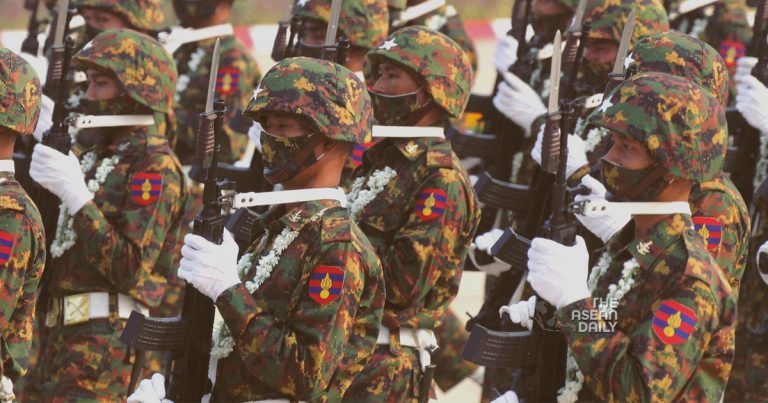5-4-2024 (GENEVA) The United Nations’ foremost human rights body, the Human Rights Council, has taken significant steps to exert pressure on Myanmar and Iran, two nations accused of employing violence against their own citizens.
On Thursday (Apr 4), the 47-member council achieved a consensus in supporting measures that urge governments to refrain from exporting or selling jet fuel to Myanmar if there are concerns that the ruling military junta might employ the fuel to violate human rights in the war-torn Southeast Asian nation. Additionally, the council called for a cessation of the illicit transfer of weapons, ammunition, and other military equipment to Myanmar.
An independent expert appointed by the council issued a warning last month, stating that Myanmar’s military government has been escalating violence against civilians as it faces increasing setbacks in its confrontations with pro-democracy and ethnic armed groups.
The military seized power over three years ago, overthrowing the elected government of Aung San Suu Kyi, which triggered widespread nonviolent opposition met with brutal force. The ensuing repression led to the emergence of armed resistance and plunged the country into a state of civil war.
Amnesty International, an advocacy group, has consistently highlighted illicit fuel shipments to Myanmar. In January, the group pointed to shipping data indicating efforts to evade sanctions in the aviation fuel supply chain. It revealed that at least seven fuel shipments were sent to Myanmar last year, with direct links to a storage facility in Vietnam.
Vietnam, currently holding a seat in the council, did not obstruct the consensus reached by the council. “This is an important message from the United Nations’ primary human rights body, emphasizing that business as usual is unacceptable when supplying jet fuel to those who employ airstrikes to commit war crimes,” stated Iniyan Ilango, Amnesty’s representative to the UN in Geneva.
Ilango acknowledged that it was a positive step, but stressed that the UN Security Council should impose a suspension on direct and indirect shipments of aviation fuel to Myanmar. Such a measure would have a significant impact on the ground by preventing the military from carrying out further airstrikes, many of which have amounted to war crimes.
The decision regarding Myanmar was made as the council concluded its initial session of the year, which commenced on Feb 26 and saw action on more than 40 resolutions addressing a wide range of issues, including the rights of children, the environment, prevention of genocide, and human rights situations in countries such as Sudan, Belarus, and North Korea.
In another development, the council voted 24-8 with 15 abstentions to pass a resolution extending the mandate of two separate investigative teams examining human rights in Iran for an additional year. One team, led by a “special rapporteur,” investigates the overall human rights situation, while the other, a “fact-finding mission,” focuses on rights violations related to protests since September 2022.
Members of the fact-finding mission informed the council last month that the Iranian government was responsible for inflicting “physical violence” that resulted in the death of Mahsa Amini, a 22-year-old woman who passed away in a hospital after being arrested by the country’s morality police for allegedly not adhering to their preferred dress code. Amini’s death sparked massive protests, and a severe security crackdown ensued, resulting in the deaths of over 500 people and the detention of more than 22,000 individuals.




